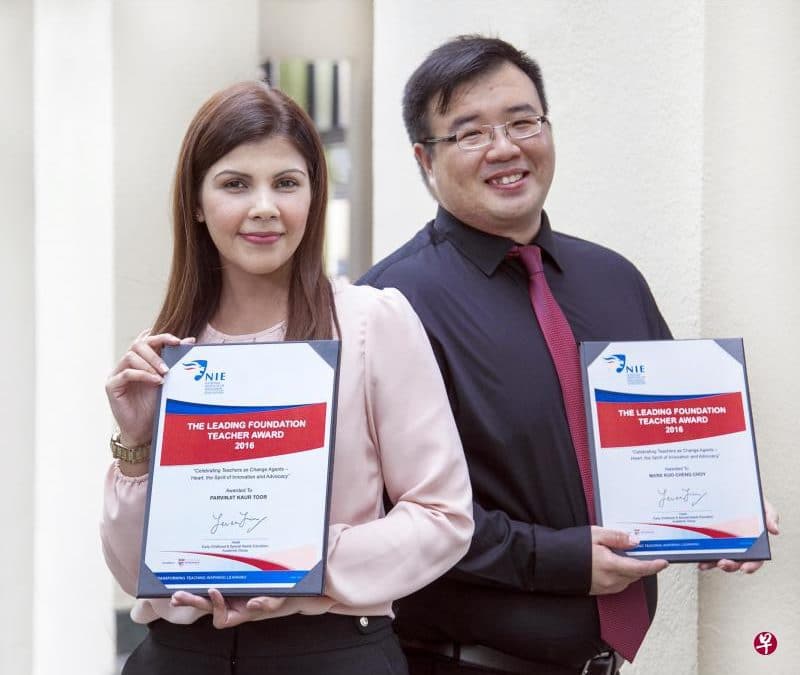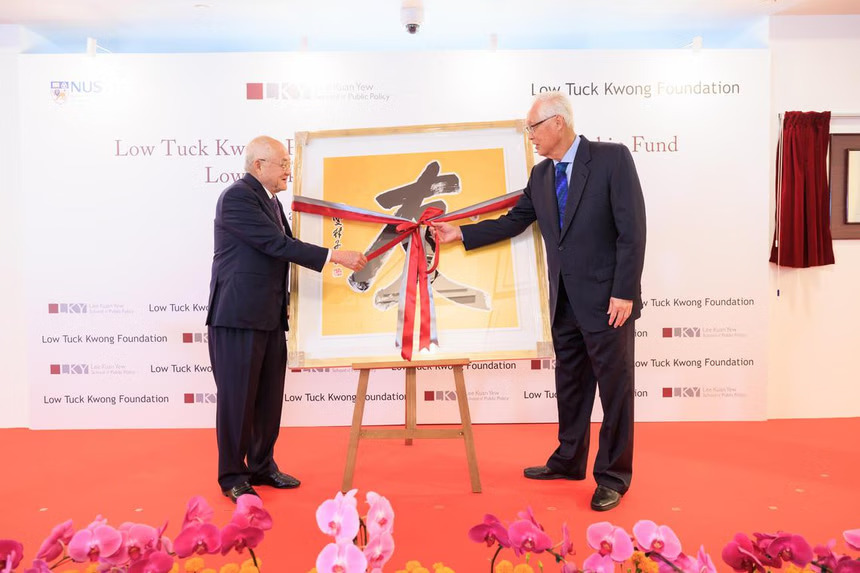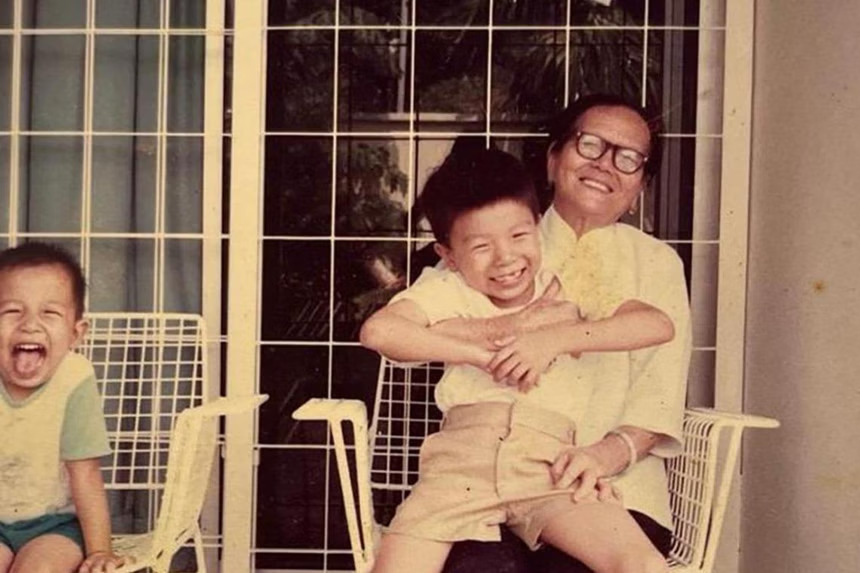联合早报: 领导基金会教师奖得主: 激发特需学生学习兴趣比成绩更重要


胡洁梅 18 October 2016
特别学校教师郭正才利用乐高让学生创作动画,也利用机器人等来提高学生的学习兴趣。对他而言,学生享受学习过程并从中激发他们的好奇心,这比学生的成品更为重要。
郭正才(33岁)在特别需求者协会东陵学校(APSN Tanglin School)任教,是今年领导基金会教师奖的得主之一。
领导基金会教师奖(The Leading Foundation Teacher Award)自前年起颁发,目的是肯定学前教育工作者、特别需求教师和教育协作人员(Allied Educator)在专业领域的卓越表现。
该基金会由新加坡政府投资公司集团总裁林祥源与女儿林华敏设立,基金会目的是支持教育与领袖培养项目,特别是肯定学前和特别教育工作者的贡献。林祥源曾在不同政府部门任要职,包括公务员首长、教育部常任秘书。
今年共有四人得奖,另三人是人民行动党社区基金会(PCF)Sparkletots学前教育中心教师帕敏吉(Parvinjit Kaur)和扎希拉(Zahirah Bte Surian),以及圣加俾尔中学教育协作员贾雅然(Jeyaram s/o Kadivan)。
郭正才踏入特别教育工作五年,对他而言,获奖是种肯定,但最大的成就感莫过于看到特需学生的才华获得他人赞赏。
他分享说,今年中带领几名学生到新加坡科技设计大学举办的“制汇节”(Maker Faire)参展,由学生介绍他们的三维打印作品。参观者在反馈单中反映对学生作品的欣赏,好些公众表示并没发觉他们是来自特别学校。
他说:“看到学生能够独立,在公众面前展现自信并获得肯定,我更加确信我的(职业)选择是正确的。”
特别需求者协会东陵学校的学生主要患有轻微智力障碍,郭正才是推动科技教学的其中一名教师。他认为,学生在制作机器人(robotics)等时能应用数学和科学概念,激发他们的思考能力和好奇心,学习也更有趣。
另一名得奖教师帕敏吉(36岁)曾是骨科矫形外科助理,因为喜欢与孩童互动,六年前到PCF Sparkletots学前教育中心(兀兰第677座)教书,边工作边进修学前教育课程。她间中也曾到AWWA的特别教育学校工作一年。
她说:“每当看到孩子的笑容,或听他们和我分享故事,我就觉得很欣慰。”
颁奖仪式由国立教育学院和新加坡社会基金会联办,新加坡社会基金会是管理领导基金会的非营利机构。评审来自国立教育学院、教育部和新加坡幼儿教师协会。今年的得奖教师可获得1350元现金和奖状。
胡洁梅 18 October 2016
特别学校教师郭正才利用乐高让学生创作动画,也利用机器人等来提高学生的学习兴趣。对他而言,学生享受学习过程并从中激发他们的好奇心,这比学生的成品更为重要。
郭正才(33岁)在特别需求者协会东陵学校(APSN Tanglin School)任教,是今年领导基金会教师奖的得主之一。
领导基金会教师奖(The Leading Foundation Teacher Award)自前年起颁发,目的是肯定学前教育工作者、特别需求教师和教育协作人员(Allied Educator)在专业领域的卓越表现。
该基金会由新加坡政府投资公司集团总裁林祥源与女儿林华敏设立,基金会目的是支持教育与领袖培养项目,特别是肯定学前和特别教育工作者的贡献。林祥源曾在不同政府部门任要职,包括公务员首长、教育部常任秘书。
今年共有四人得奖,另三人是人民行动党社区基金会(PCF)Sparkletots学前教育中心教师帕敏吉(Parvinjit Kaur)和扎希拉(Zahirah Bte Surian),以及圣加俾尔中学教育协作员贾雅然(Jeyaram s/o Kadivan)。
郭正才踏入特别教育工作五年,对他而言,获奖是种肯定,但最大的成就感莫过于看到特需学生的才华获得他人赞赏。
他分享说,今年中带领几名学生到新加坡科技设计大学举办的“制汇节”(Maker Faire)参展,由学生介绍他们的三维打印作品。参观者在反馈单中反映对学生作品的欣赏,好些公众表示并没发觉他们是来自特别学校。
他说:“看到学生能够独立,在公众面前展现自信并获得肯定,我更加确信我的(职业)选择是正确的。”
特别需求者协会东陵学校的学生主要患有轻微智力障碍,郭正才是推动科技教学的其中一名教师。他认为,学生在制作机器人(robotics)等时能应用数学和科学概念,激发他们的思考能力和好奇心,学习也更有趣。
另一名得奖教师帕敏吉(36岁)曾是骨科矫形外科助理,因为喜欢与孩童互动,六年前到PCF Sparkletots学前教育中心(兀兰第677座)教书,边工作边进修学前教育课程。她间中也曾到AWWA的特别教育学校工作一年。
她说:“每当看到孩子的笑容,或听他们和我分享故事,我就觉得很欣慰。”
颁奖仪式由国立教育学院和新加坡社会基金会联办,新加坡社会基金会是管理领导基金会的非营利机构。评审来自国立教育学院、教育部和新加坡幼儿教师协会。今年的得奖教师可获得1350元现金和奖状。
- Related Topics For You: ACCESSING QUALITY EDUCATION, CAREGIVER SUPPORT, CHARITY STORIES, CHILDREN, EDUCATION, INCLUSIVITY & INTEGRATION, NEWS, PERSONS WITH DISABILITIES, STORIES OF IMPACT, YOUTH



